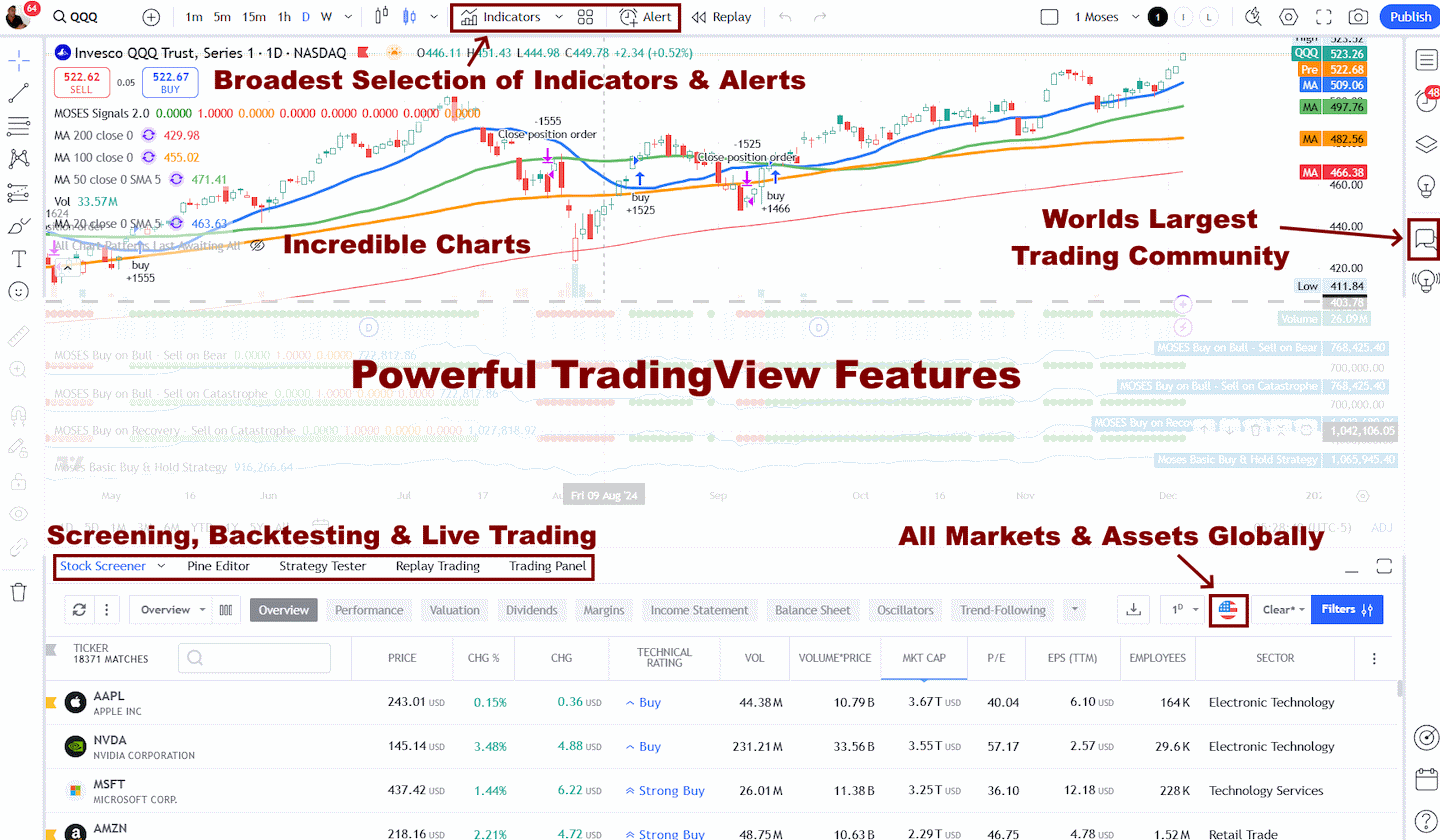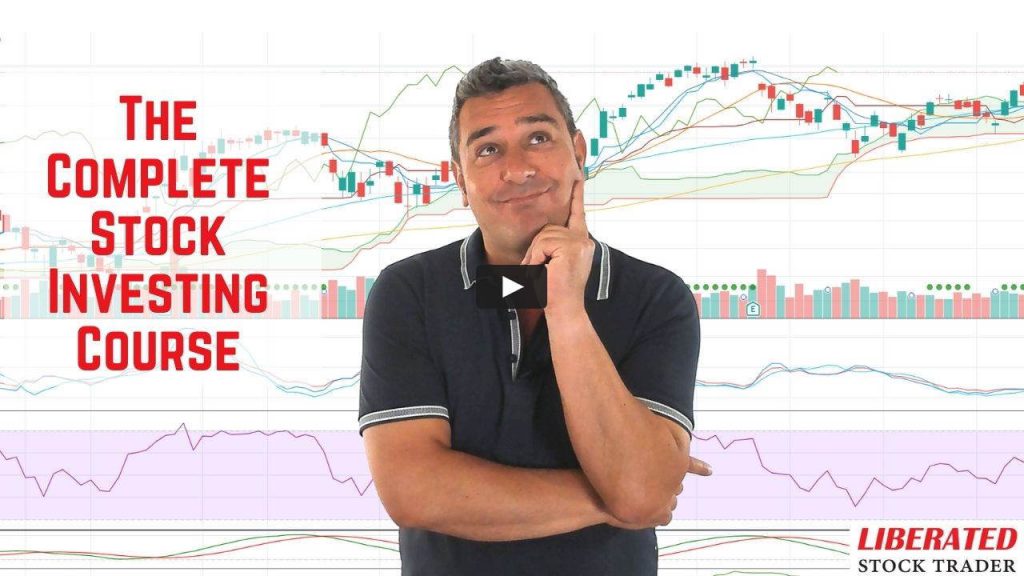Many investors are interested in Sephora because it is one of the world’s largest luxury cosmetic brands. Sephora operates over 2,700 stores in 35 countries and sells enormous amounts of cosmetics and other products online.
Sephora sells products from hundreds of cosmetic, fragrance, hair, skincare, toiletry, and dental brands, including some of the most famous names in cosmetics. Some of Sephora’s brand catalog highlights include Estée Lauder, Burberry, Calvin Klein, HERMÈS, Yves Saint Laurent, Versace, and Chanel.
Sephora Stock
You cannot buy stock directly from the cosmetics giant Sephora, but you can buy shares in the company that owns Sephora. Sephora stock is owned by a French luxury goods conglomerate called Moët Hennessy Louis Vuitton, or LVMH for short.
Note: This is an unbiased research report. The author or Liberated Stock Trader is not affiliated, paid by, or owns stock in any of the companies mentioned in this report.
Who owns Sephora?
Moët Hennessy Louis Vuitton (LVMH) owns 100% of Sephora. Sephora is one of LVMH’s 75 business units. LVMH is one of the world’s leading luxury brands.
Is Sephora on the Stock market?
No, Sephora is not directly listed on any stock exchange globally because Sephora is not a publicly traded company. Moët Hennessy Louis Vuitton LVMH wholly owns Sephora, so if you want to buy shares in Sephora, you need to buy stock in LVMH.
Sephora Stock Chart (LVMH)
View LVMH (Sephora) Live Financials & Charts
Moët Hennessy Louis Vuitton LVMH stock trades on the Euronext Paris exchange under the ticker symbol LVMH. US investors can buy LVMHF through the over-the-counter market. That means you can purchase LVMH Moët Hennessy Louis Vuitton shares and fractional shares through trading apps. You can locate the stock by searching for the ticker name LVMH.
Sephora Stock Symbol LVMH
Sephora’s base stock ticker symbol is LVMH because Sephora is part of LVMH Moët Hennessy Louis Vuitton. LVMH can be purchased on many different stock exchanges, so its country-based stock symbol will vary.
LVMH Moët Hennessy Louis Vuitton trades on European exchanges with the ticker LVMH and American stock markets under the ticker symbol LVMUY, or LVMHF.
My thorough testing awarded TradingView a stellar 4.8 stars!
With powerful stock chart analysis, pattern recognition, screening, backtesting, and a 20+ million user community, it’s a game-changer for traders.

Whether you're trading in the US or internationally, TradingView is my top pick for its unmatched features and ease of use.
Explore TradingView – Your Gateway to Smarter Trading!
Who Owns Sephora Stock?
Sephora stock is wholly owned by LVMH Moët Hennessy Louis Vuitton. Although Sephora promotes over 3,000 different cosmetic and beauty brands, it is itself a subsidiary of LVMH Moët Hennessy Louis Vuitton.
Some exchange-traded funds (EFTs) own LVMH. Funds that track the S&P Global Luxury Index will contain LVMUY. LVMH is the first stock listed on the S&P Global Luxury Index Index’s website.
For example, Moët Hennessy Louis Vuitton accounts for 7.69% of the AMUNDI S&P GLOBAL LUXURY UCITS ETF’s holdings, and LVMUY accounts for 3.03% of the Emles Luxury ETF’s holdings.
You can discover if an ETF holds LVMUY by checking the fund’s website. The website will display a list of the fund’s largest holdings.
Sephora Stock Price (LVMH)
LVMH Moët Hennessy Louis Vuitton is a popular stock, and its stock price has risen 215% in the previous five years to 2023. In November 2019, LVMH’s stock price was $247; now, it is over $790 per share.
Luxury brands have garnered bullish interest from investors as they emerge from the pandemic. LVMH’s robust financial data substantiates the share price, reflecting the company’s consistent growth and increased profitability.
LVMH and other luxury brands are growing because the number of millionaires is increasing.
More millionaires mean more customers for LVMH Moët Hennessy Louis Vuitton. More people can afford yachts, Louis Vuitton leather goods, champagne, French wine, Christian Dior fashions, and trips to Paris.
Suppose the first-generation millionaires do not buy those luxuries. History shows their children will. LVMH is trying to attract those children’s bossiness by signing contemporary designers.
LVMH Dividend
LVMH also issues a regular dividend; its current dividend yield is 1.76%. According to Stock Rover, LVMH paid a $12.84 dividend per share in 2023, and that looks to increase in 2024.
Alternative Investments to LVMH
Today’s stock market offers many interesting alternatives to LVMH Moët Hennessy Louis Vuitton. My favorite LVMH alternatives include:
1. Hermès International SA.
Hermès Paris sells high-end home furnishings, leather goods, perfumes, jewelry, cosmetics, toiletries, watches, and ready-to-wear clothes from 306 stores in 45 countries. Hermès also operates an online store that sells many luxury goods online.
Hermès only offers its brand and concentrates on retail sales, unlike LVMH Moët Hennessy Louis Vuitton. There is no diversification at Hermès, so it is more vulnerable to economic downturns.
One advantage of Hermès is that it has stores worldwide. There are Hermès stores in Europe, China, and the United States. That means Hermès is less exposed to one market than LVHM and Berkshire Hathaway.
I think Hermès is an interesting stock with some value and a high margin of safety. Hermès is a value investment in luxury goods.
2. Berkshire Hathaway Inc.
There are interesting similarities between Warren Buffett’s enterprise and LVMH Moët Hennessy Louis Vuitton. Both businesses are holding companies that own a diverse assortment of brands.
Berkshire owns companies that manufacture candies, paint, recreational vehicles, boats, buses, trailers, machine tools, and even bricks. A key difference between Berkshire and LVMH is large insurance, energy, and utilities holdings. Buffett prefers the steady cash flow of float-generating businesses to high-priced luxury goods.
View the Berkshire Hathaway Chart Live on TrendSpider
Berkshire Hathaway owns at least three jewelers: Ben Bridge Jeweler, Borsheims Fine Jewelry, and Helzberg Diamonds. Berkshire also owns a leather goods company, bootmaker Justin Brands.
One way to think of LVMH is as France the brand. LVMH Moët Hennessy Louis Vuitton owns many iconic French brands, including Louis Vuitton, Christian Dior, Krug, and the Le Parisian newspaper. LVMH is marketing France, or at least the Hollywood version of France, rather than luxury.
Berkshire owns iconic American brands like Fruit of the Loom, Dairy Quen, Duracell, Kraft Heinz, GEICO, Johns Manville, Benjamin Moore Paints, Brooks Brothers, See’s Candies, and the Burlington Northern-Santa Fe railroad.
Unlike LVMH, Berkshire owns many brands that cater to America’s middle class. Buffett is as strongly invested in America’s consumer culture as LVMH invests in France’s high culture.
The biggest difference between LVMH and Berkshire Hathaway is Berkshire’s large stock holdings. Berkshire Hathaway holds enormous blocks of stock in such iconic American companies as Apple (AAPL), Kroger (KR), Wells Fargo & Company (WFC), American Express (AXP), and Bank of America (BAC).
Berkshire Hathaway is an excellent alternative to LVMH Moët Hennessy Louis Vuitton because of its focus on the United States and middle-class consumer brands. Owning LVMH and Berkshire could be a good way to diversify a portfolio.
Are Luxury Goods a Value Investment?
Luxury goods companies are value investments in today’s world because of growing wealth and rising income inequality. There are more rich people than ever in history, and those wealthy individuals have more cash to spend.
Investors must examine luxury goods stocks such as LVMH Moët Hennessy, Louis Vuitton, and Hermès. These companies offer growing revenues and large amounts of cash. Similarly, luxury goods ETFs and Berkshire Hathaway offer both the cash luxury goods offer and diversification.
All investors need to watch the luxury goods market in today’s world because it has become a cash cow—investors who love cash and high margins of safety need to examine luxury goods companies and their stocks.
Sephora’s Parent Company, LVMH, is a Luxury Goods Powerhouse
LVMH is a holding company that owns 75 luxury product brands. They divide the LVMH business into six “houses.” Each house specializes in a specific area of luxury products. The houses include:
- Wines & Spirits
- Fashion & Leather Goods
- Perfumes & Cosmetics
- Watches & Jewelry
Sephora is part of the selective retailing group LVMH, which operates over 5,000 stores worldwide. LVMH owns legendary luxury brands, including Louis Vuitton, Christian Dior, Tiffany & Co., Château Cheval Blanc, TAG Heuer, Maison Kenzo, Virgil Abloh, and Krug.
Other activities include the high-end Dutch yacht builder Royal Van Lent. That means LVMH owns a shipyard through one of its subsidiaries,
LVMH is also a property manager and real estate developer. It owns la Samaritaine, a Paris landmark that is under renovation. The renovated la Samaritaine will contain a five-star Cheval Blanc hotel, a department store, 96 social housing units, offices, and a crèche (daycare center).
Some odd LVMH subsidiaries include The Cheval Blanc luxury hotel chain, the Investir – Le Journal des Finances weekly financial newspaper, the Jardin d’Acclimatation, France’s oldest amusement park, Radio Classique, a French radio network, the Le Parisian newspaper, and the Connaissance des Arts magazine.
LVMH Moët Hennessy Louis Vuitton reminds me of Warren Buffett’s Berkshire Hathaway (NYSE: BRK.H). Berkshire Hathaway also owns many seemingly unrelated companies, such as Fruit of the Loom underwear, several See’s Candies, and Borsheim jewelry.
Latest Sephora LVMH Financial News
In 2024, Sephora has experienced several noteworthy financial developments:
- Strong Revenue Growth: Sephora reported double-digit growth in sales, even as its parent company, LVMH, faced declines in overall sales and profit for the first half of the year. This indicates Sephora’s resilience and strong market position within the beauty industry.
- New Store Openings: The company is expanding its footprint, with plans to open more than 100 new shops in partnership with Kohl’s. This expansion aims to enhance accessibility and attract a broader customer base.
- Beauty Assortment Expansion: Sephora unveiled its largest beauty assortment in Asia at the ION Orchard location, featuring over 160 brands and more than 12,000 products. This move is part of the company’s strategy to cater to diverse consumer preferences and enhance its market presence.
- 2024 Birthday Gifts Program: Sephora launched its 2024 Beauty Insider birthday gifts, featuring popular products from brands like Kosas and Youth To The People, aimed at boosting customer engagement and loyalty.
- Positive Market Outlook: Analysts predict that the U.S. cosmetics and beauty market will grow by 6.9% in 2024, significantly outpacing the broader retail industry’s expected growth of 2.8%. This trend bodes well for Sephora as it continues to capitalize on the growing demand for beauty products.
These developments highlight Sephora’s strategic initiatives to drive growth and enhance its competitive position in the beauty retail sector.
Invest in yourself! Get all our courses & strategies for 50% off

★ Liberated Stock Trader Pro Stock Investing & Trading Course ★
★ M.O.S.E.S. Market Outperforming ETF Strategy ★
★ LST Beat the Market Stock Picking Strategy ★
★ Exclusive Bonus Course – The Stock Market Crash Detector Strategy ★
★ Fully Guided Videos, eBooks & Lifetime Email Support ★
★ 108 Videos + 3 Full eBooks + 5 Scripts for TradingView & Stock Rover ★
You want to be a successful stock investor but don’t know where to start.
Learning stock market investing on your own can be overwhelming. There’s so much information out there, and it’s hard to know what’s true and what’s not.
Liberated Stock Trader Pro Investing Course
Our pro investing classes are the perfect way to learn stock investing. You will learn everything you need to know about financial analysis, charts, stock screening, and portfolio building so you can start building wealth today.
★ 16 Hours of Video Lessons + eBook ★
★ Complete Financial Analysis Lessons ★
★ 6 Proven Investing Strategies ★
★ Professional Grade Stock Chart Analysis Classes ★

